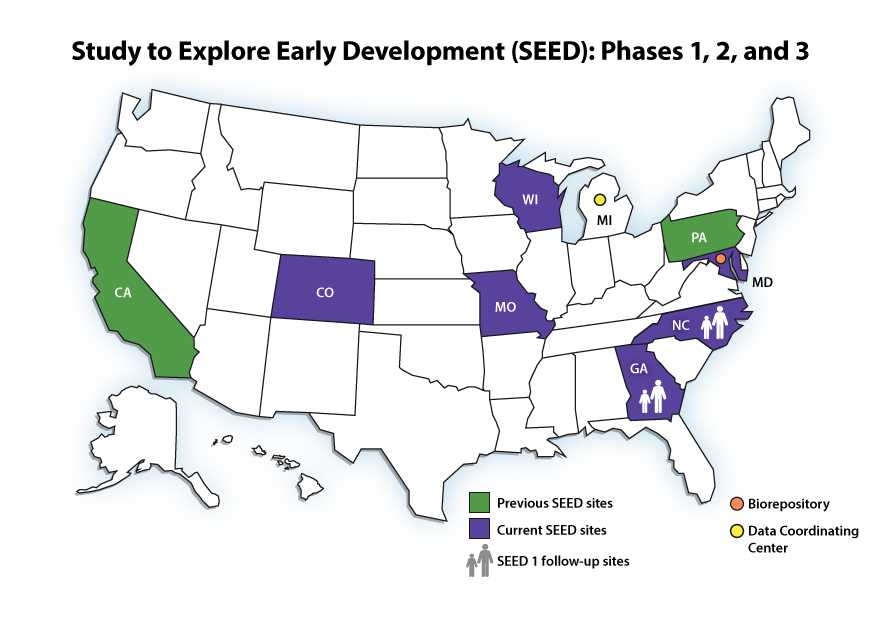Centers for Autism and Developmental Disabilities Research and Epidemiology (CADDRE)
 CDC established regional centers of excellence for autism spectrum disorder (ASD) and other developmental disabilities. These centers make up the Centers for Autism and Developmental Disabilities Research and Epidemiology (CADDRE) Network.
CDC established regional centers of excellence for autism spectrum disorder (ASD) and other developmental disabilities. These centers make up the Centers for Autism and Developmental Disabilities Research and Epidemiology (CADDRE) Network.
Current Activities
The CADDRE Network is working on the Study to Explore Early Development (SEED). SEED is the largest study in the United States to help identify factors that may put children at risk for ASDs and other developmental disabilities.

Previous Activities
Prior to working on SEED, the goals of the CADDRE project were to:
- Work with the ADDM Network to monitor the number of children with ASD and other developmental disabilities.
- Improve community and service provider awareness of ASD and other developmental disabilities, or improve access of children with ASD and other developmental disabilities to comprehensive, community-based, family-centered care.
- Conduct epidemiologic research related to ASD and other developmental disabilities. These studies addressed topics such as what factors (genetic, environment, and others) make it more likely that a child will have an ASD, what other disabilities children with ASD have, biomarkers, and the economic costs of ASD.
CADDRE Publications
To find other publications related to ASD, visit our Articles page.
E-mail Your Friends
"Children with autism spectrum disorder are not being diagnosed as early as they could be. Learn the signs of autism and get help if you’re concerned."
Share on Facebook

“Many children with autism spectrum disorder (ASD) are not being identified as early as they could be. Early identification is the most powerful tool we have right now to make a difference in the lives of children with ASD.”
Share on Twitter
“Too many children w/ autism are not being identified as early as they could be. Earlier is better. #ActEarly”
- Page last reviewed: May 23, 2017
- Page last updated: May 23, 2017
- Content source:


 ShareCompartir
ShareCompartir